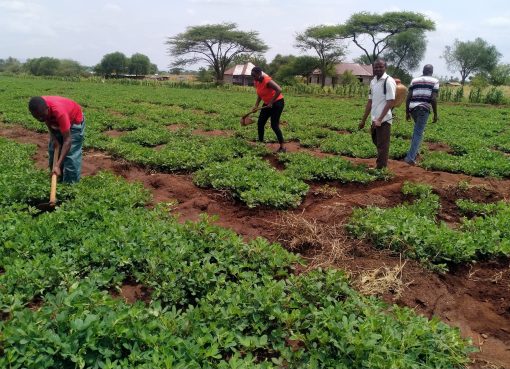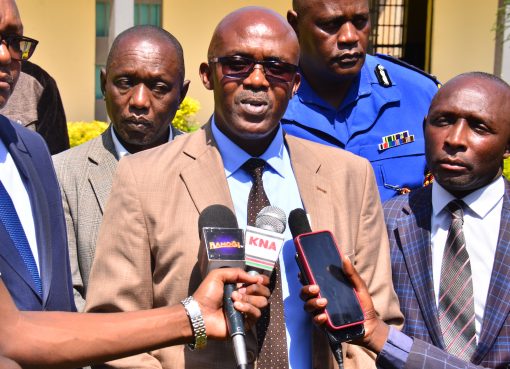The Senate Select Committee on Agriculture, Livestock and Fisheries has challenged pastoralist communities to consider diversifying their economic activities instead of over relying on livestock keeping.
The committee led by Senator Njeru Ndwiga pointed out that an alternative source of livelihood could effectively help in addressing the perennial clashes over grazing resources, banditry and loss of livestock occasioned by regular drought.
In a press briefing at the Marsabit County Assembly on Monday, Ndwiga who had earlier led the committee in a courtesy call on Marsabit governor, Mohamud Ali in his office noted that the county had suitable soil for crop production and rooted for irrigation activities in the region.
The Embu Senator and the chair of the committee said it was high time that Marsabit county leadership explored ways in which the predominant pastoralist communities could start engaging in crop agriculture so as to make them food secure.
Ndwiga also appealed for tolerance among local political leaders and citizens in order to ensure there was lasting peace.
The committee regretted that the image of the county was negatively painted by the media and called for harmonious co-existence among locals to attract investment, job and wealth creation.
The senator called on the residents to emulate the handshake between President Uhuru Kenyatta and ODM Leader, Raila Odinga as the surest way of cementing good relations and neighborliness.
The committee also called for proper mitigating plans against hunger in order to ensure that no Kenyan starves.
Ndwiga wondered what role members of the county assemblies in drought ravaged counties were playing when their constituents were suffering from hunger with no timely reports having been made to the government.
On his part, Migori Senator Ochillo Ayacko, urged Marsabit parents to invest in education and use the wealth they derived from livestock to give their children education.
“You need to stop these constant ethnic hostilities against each other because it is not only retrogressive but a scare to any potential investor into this county,” he cautioned.
During the meeting, th governor pointed out that rain fed agriculture was no longer sustainable in Marsabit because the region receives little and unreliable rainfall.
Ali called on the national government to continue investing in irrigation dams that would enable residents to engage in viable crop agriculture for both subsistence and commercial purposes.
The committee was in the county to assess feasible agricultural activities that included pilot cotton farming and food crops among others.
Marsabit County has pockets of irrigation fields in Loglogo, Walda, Badassa and Kinisa areas.
By Sebastian Miriti



